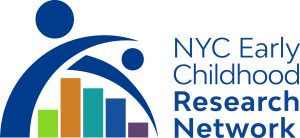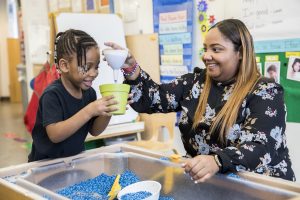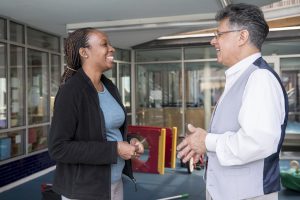
Who Is the Researcher? Teachers as Researchers of Diversity and Equity in Early Childhood Education
As an educator I have frequently been a part of research. Often, this involvement was on the periphery, as a […]

As an educator I have frequently been a part of research. Often, this involvement was on the periphery, as a […]

“By we assessing the children within 45 days…we may see wherethat child might need some help and where can we […]

“It is research that will spotlight the importance for supporting the early childhood field…”-Research-to-Practice session participant. This April, the Professional […]

At the New York City Early Childhood Research Network, we bridge research, policy, and practice by providing actionable insights to improve […]

“We need a campaign where providers, coaches, special educators, therapists and families can tell their story because this is not […]

My internet service …is not reliable, very slow speed and it cuts off very often. I have had to upgrade […]

I cannot begin to say how proud I am of my staff and colleagues. People react very differently to stress/trauma, […]

“This sounds cliché, but I am genuinely moved and inspired by the families of my students–the foster sister who makes […]

Pre-k is for social-emotional development and that seems to be missing remotely. I can see it working for older grades, […]

“It’s okay to have many feelings.” As an educator in a preschool classroom I’ve often used or heard some version […]